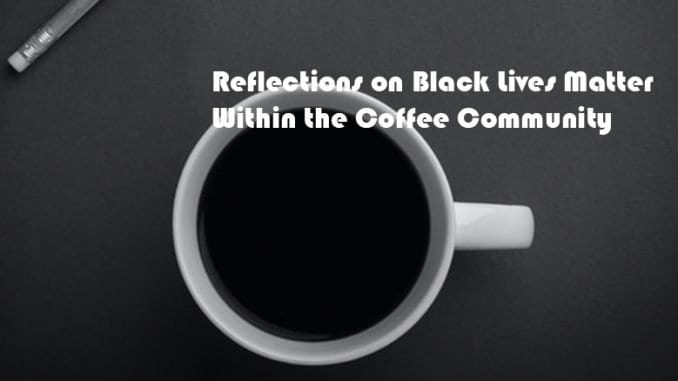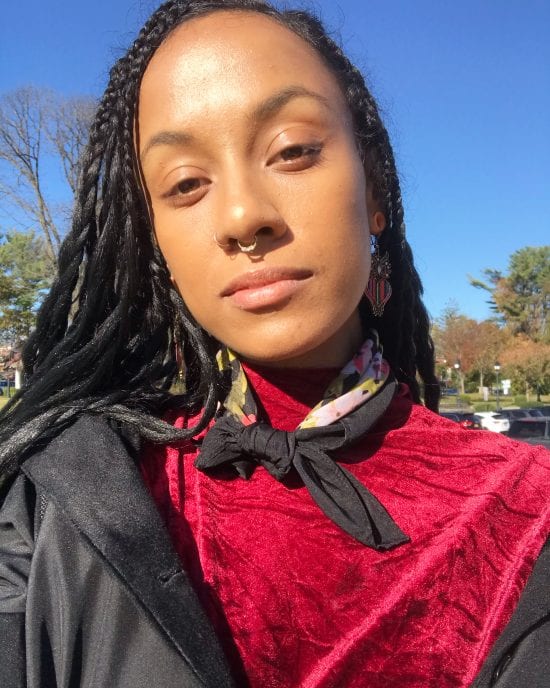
An industry member describes her experiences navigating her place within the Black Lives Matter movement while being a part of the coffee community.
BY ALLIE DANCY
SPECIAL TO BARISTA MAGAZINE ONLINE
Calling out racism in the coffee community is not a new thing. The spur of accusations and uncovering of systemic racism is not a new movement. The coffee companies that have been called out on their injustices way before Black Lives Matter are no strangers to these confrontations. Coffee companies that have actively addressed the systemic inequalities within their companies and the attitudes of upper management have allowed these inequalities to continue, and are just names to faces that we have not been allowed to place until it was socially acceptable to cause an uproar. We have to question whether things within the coffee community ACTUALLY will change or not this time.
My sentiments are that I have no remorse for any of the companies being called out; I only feel for the people in my community who now have a smaller pool of opportunities to thrive. I am left to wonder: Are these companies sorry for saying these things and for allowing these things to happen? My better judgment tells me, they are mostly sorry that they were caught. There have to be companies that BIPOC feel comfortable working for. Companies that are run by Black people need to have enough resources given to them to be able to hire and thrive more. There have to be companies for which Black People, specifically, will not have to compromise their morals and due justice just for a paycheck.
The COVID-19 pandemic is responsible for the shutdown of a large percentage of our places of work. It gave some of us a chance to dissociate the trauma that comes with being in the customer service and hospitality industry. It gave me a chance to evaluate whether I could go back to working twice as hard to be paid less than my white cis-male coworker, and whether being on call 24/7 was worth the time I lost with my son. My answer was: What else do I have? Like so many of my coworkers and colleagues, I have a family to provide for. What other options do I have long-term? It was in my best interest to not rock the boat. To be able to work at home was a blessing, but it came with the idea that I needed to work harder to be able to deserve this opportunity.
I felt lucky about the fact that I still had a job even though I had not taken any time to myself to address every change that was going on around me. My livelihood was changing, I was homeschooling my 8-year-old, and I had to transition to stay-at-home mom/coworker/customer service rep all while taking a pay cut. I had been gaslighted by my own industry, my own chosen profession.
Those who choose to employ baristas have tricked us into thinking we are learning an invaluable skill, we are following golden standards and producing perfection for the sake of our personal lives, for the risk of contracting a disease responsible for a global pandemic, but still we are lucky to be open. There was no assurance from an industry that had not provided a cushion to soften the blow. To be able to have a paycheck, to be praised for minimum wage but still be reduced to being replaceable. Baristas are not given the credit due. The emotional trauma of customer interaction, the day-to-day of saving face, and the lack of resources available (health insurance, mental health support, mandating human resource programs in an industry that forces us to compromise our morals) lower the barista’s true value when it comes to their internal worth and well-being.
My call to action is this: Reform the coffee community as a whole. If CEOs are resigning from companies because someone else needs to lead the masses, the coffee community should follow suit. We need to employ baristas to our upper tiers, whether it be social media/marketing teams or account management. They are our best possible resource. They deserve to be paid for their work AND THEIR THOUGHTS. Yes, to have a coveted position, there must be rules to be followed, accolades to be had. Who is creating these benchmarks? Who is deciding the worth of a barista? Why are we left to decide our own worth? We can’t value the work we do when we see being a barista as transitional work, if those who employ us don’t take our livelihood seriously. If coffee jobs evolved as we do, as people grow, the options for the industry would be unlimited. We could live as the multi-dimensional humans that we are without having to compartmentalize ourselves at work.
The Black Lives Matter movement gave some people the courage to call their workplaces out. Black coffee professionals must not be left out of the call back to work now that everyone said what needed to be said. We must be given more than our jobs back—we must be given voices.
These are issues that are not new to my community. They are the reason that a lot of us have left jobs. Whether they were outright statements of racism or micro-aggressions that made us feel a type of way, we have been asked for too long to provide concrete examples, when the biggest example of all has been in front of us the whole time. Look at the holders of companies who control the pockets of those in need of work. Those who so passionately love the ability of being able to learn a new skill are so very much taken advantage of. We were made to feel “lucky,” “privileged” to have a job synonymous with certifications, competitions, and accolades that we were told not to ask for anything more. We have been made to feel that we should be happy to be here at all but that we had to have enough funding and money to gain any real credibility. (See: Cost of a Q Grader certificate and competition fees.)
The only certification I need is my lived experience. That is my contribution to the team and to making Black Lives truly matter. I know for sure that no one needs to be given a Coffee 101 lesson to know where coffee originates. I also know Black people don’t need to be responsible for the discovery of coffee to know we are important. I do know, true equality begins with a larger range of unheard voices. If you are running a business, be aware of the cost of living within that area. If you are moving into our communities and benefiting off of our dollar, we need a voice in your café. If you are buying our green coffee, and trying to teach our people, we need more of YOUR money. If you are requiring our full time and our skill set to operate, we need assurance that we have the means to live our lives.
Sincerely, *not* just a coffee educator.
P.S. Black Lives Matter.

ABOUT THE AUTHOR
Allie Dancy is a native New Yorker who loves all things related to cakes, cowgirls, and cawfee.

